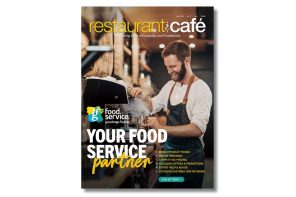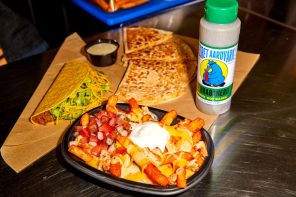Switch Espresso is a Christchurch-based coffee roastery. Since 2006, Switch Espresso has slowly grown from its humble roots to incorporate the Industrie Espresso Bar, Black Betty and Bunsen cafes.
Wholesale manager Jeremy Innes was once a roaster. His father lured him back from London to work for him at Toasted Espresso. After many years, the opportunity to work with Switch Espresso managing director Hamish Evans in Innes' hometown arose. Nearly seven years later, Innes is still there.
"I had worked in various hospitality sectors for years before coffee. I've always loved the hospitality and coffee scene - especially the specialty side of things," said Innes.
"From roasting, I wanted to learn more and take it to a different level. Now I'm itching to learn more and get out to the origins like Columbia and Brazil."
Switch Espresso imports a few origins from suppliers, but approximately 40 percent of its beans are it’s own.
"We timed it right with our shipment from Ethiopia," said Innes.
"We got it just before the first lockdown, and then another shipment just before this most recent lockdown. We've had good timing, but we're seeing prices going up elsewhere, especially with the big frosts in Brazil."
Innes said the biggest issues have been the costs of freight and feared it would only get worse.
Switch Espresso's beans come from organic and Fairtrade farms, which it then roasts into single origin or blends.
"We roast our single origins on their own," said Innes.
"We roast all single origins to the parameters we want to achieve, and we blend them afterwards. We feel this adds quality to our coffee."
Sustainability plays a significant role in Switch Espresso's business, said Innes.
"We've shifted to using coffee buckets for our cafe supply, which has saved 49,000 bags. All retail bags are now fully recyclable paper bags with stamped labels to save plastic."
For those outside its delivery boundaries, Switch Espresso uses reusable bags similar to Ziplock bags which cafes can use and courier the bag back or have it collected with the next shipment.
All three Switch Espresso cafes are also dedicated to composting and the Again Again campaign.
The coffee farms are also sustainable, being organic and Fairtrade. They also use fewer pesticides and grow a multi-harvest, such as corn or bananas, to reduce the risk of a bad harvest.
Like other roasteries and cafes, Covid has dried up the staffing pool for Switch Espresso.
"Finding kitchen staff with the visa situation is hard. Our partners are having trouble, as well as other cafes and coffee companies."
Innes believed the pandemic would cull the small and weak, leaving only the strongest and fittest.
"It'll be the experienced owner-operators that survive," he said.
"There's too much international buy-in at the moment, so hopefully, the little guys will pop up again in the aftermath of the pandemic. You can still be big in New Zealand."
The most rewarding aspect of Innes' job is seeing partnerships blossom between a coffee roaster and cafe, seeing baristas improve and cafes grow in patronage and experience.
For those searching for their big break in the coffee industry, Innes suggested knocking on some doors.
"If you're keen, knock on some doors. Say you want to hang out for half a day. If that doesn't work, the next best thing is becoming a barista and starting on that side of things. Get a feel for the industry and a love for coffee."






